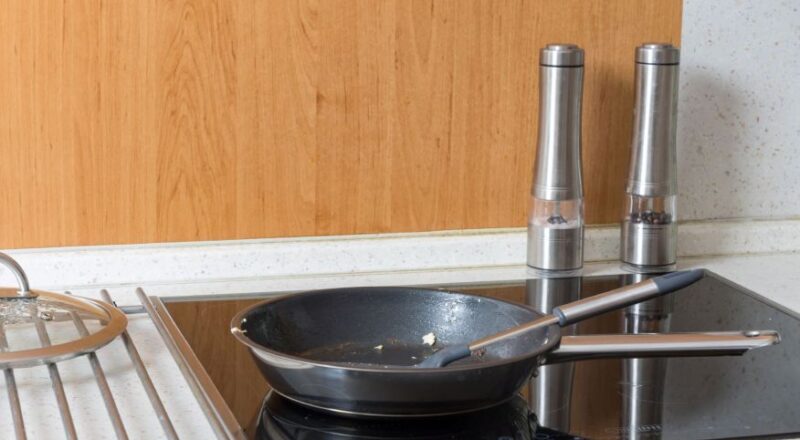Cooking with induction cooktops has gained popularity due to its efficiency and precision. When it comes to choosing cookware for induction, the debate often centers around cast iron vs enameled steel on induction. Each material has its own merits and understanding these can help you make an informed choice.

Understanding Induction Cooking
Induction cooking uses electromagnetic fields to heat pots and pans directly. This method is faster and more energy-efficient than traditional gas or electric stoves. However, not all cookware is suitable for induction. Cookware must be magnetic to work on an induction cooktop.
For more details on how induction cooktops work, you can visit How Induction Cooktops Work.
Characteristics of Cast Iron
Cast iron is known for its excellent heat retention and even heating. It is a favorite among chefs for searing and frying due to its ability to maintain high temperatures. However, cast iron requires regular seasoning to prevent rust.
Benefits of Cast Iron on Induction
Using cast iron on induction cooktops offers several benefits:
- Efficiency: Cast iron’s magnetic properties make it highly efficient on induction cooktops.
- Durability: With proper care, cast iron cookware can last a lifetime.
- Versatility: Suitable for a variety of cooking methods, including baking and frying.
Challenges with Cast Iron
Despite its advantages, cast iron does have some drawbacks:
- Weight: Cast iron is heavy, which can make it difficult to handle.
- Maintenance: Requires regular seasoning to maintain its non-stick properties.
- Potential for Scratches: Can scratch induction cooktops if not used carefully. Learn how to avoid scratches here.
Characteristics of Enameled Steel
Enameled steel combines the heat-conducting properties of steel with a protective enamel coating. This cookware is popular for its aesthetic appeal and non-reactive surface.
Benefits of Enameled Steel on Induction
When used on induction cooktops, enameled steel offers several advantages:
- Easy Maintenance: The enamel coating makes it easy to clean and maintain.
- Non-reactive Surface: Safe for cooking acidic foods without altering taste.
- Variety of Designs: Available in a wide range of colors and styles.
Challenges with Enameled Steel
There are also a few downsides to consider:
- Chipping Risk: The enamel coating can chip if handled roughly.
- Less Heat Retention: Does not retain heat as well as cast iron.
- Cost: Generally more expensive than plain cast iron.
Comparing Cast Iron and Enameled Steel
When deciding between cast iron vs enameled steel on induction, consider your cooking style and needs:
- Heat Retention: Cast iron excels in heat retention, while enameled steel heats up quickly but cools down faster.
- Maintenance: Enameled steel is easier to maintain, but cast iron offers unmatched durability.
- Weight: Enameled steel is usually lighter and easier to handle than cast iron.
Practical Applications
For tasks such as making pizza on induction, cast iron is ideal due to its ability to maintain high heat. For everyday cooking, enameled steel might be more convenient due to its easy maintenance.
Expert Opinions
Experts agree that both materials have their place in a modern kitchen. According to a report by Tom’s Guide, cast iron’s heat retention makes it ideal for high-temperature cooking, while enameled steel is preferred for its ease of use.
Conclusion
Choosing between cast iron vs enameled steel on induction depends on your cooking preferences and requirements. Consider the benefits and challenges of each to make an informed decision that suits your kitchen.

FAQs
Can I use cast iron on an induction cooktop?
Yes, cast iron is magnetic and works efficiently on induction cooktops.
Is enameled steel better for acidic foods?
Yes, the enamel coating makes it non-reactive, making it suitable for acidic ingredients.
Which is more durable, cast iron or enameled steel?
Both are durable, but cast iron can last longer with proper care, while enameled steel requires careful handling to prevent chipping.
This article contains affiliate links. We may earn a commission at no extra cost to you.

